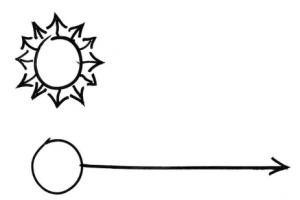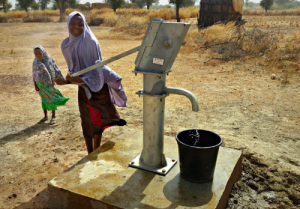by Stephanie Coles
2018 marks the start of what the U.N. is calling “the Water Action Decade:” a decade-long quest to improve the world’s access to clean water. As outlined by the President of the United Nations General Assembly, “clean, accessible water is critical for sustainable development and the eradication of poverty and hunger, and it is indispensable for human development, health and well-being. There is sufficient fresh water on the planet to achieve this. But water-related challenges, including limited access to safe water and sanitation…remain high on the global agenda.”
The goals of this plan, however, are being rolled into the U.N.’s larger “2030 Agenda for Sustainable Development”. Goals for this agenda include:
People – We are determined to end poverty and hunger, in all their forms and dimensions, and to ensure that all human beings can fulfill their potential in dignity and equality and in a healthy environment.
Planet – We are determined to protect the planet from degradation, including through sustainable consumption and production, sustainably managing its natural resources and taking urgent action on climate change, so that it can support the needs of the present and future generations.
Prosperity – We are determined to ensure that all human beings can enjoy prosperous and fulfilling lives and that economic, social and technological progress occurs in harmony with nature.
Peace – We are determined to foster peaceful, just, and inclusive societies which are free from fear and violence. There can be no sustainable development without peace and no peace without sustainable development.
Partnership – We are determined to mobilize the means required to implement this Agenda through a revitalized Global Partnership for Sustainable Development, based on a spirit of strengthened global solidarity, focused in particular on the needs of the poorest and most vulnerable and with the participation of all countries, all stakeholders and all people.
The agenda in total lists 169 targets in 17 goal areas.
I recently read a book by Greg McKeown called Essentialism. The core of the book can be distilled into three sentences:
- “Essentialism is a disciplined, systematic approach for determining where our highest point of contribution lies, then making execution of those things almost effortless.”
- “The way of the Essentialist rejects the idea that we can fit it all in.”
- “When faced with so many tasks and obligations that you can’t figure out which to tackle first, stop. Take a deep breath. Get present in the moment and ask yourself what is most important this very second – not what’s most important tomorrow or even an hour from now.”
There’s a very powerful image in the book that demonstrates how much more progress can be made when channeling your energy into one goal, rather than splitting your focus in 12 different ways:

While I can’t help but feel inspired by the lofty goals of the U.N.’s agenda, it is hard to feel empowered to help as an individual when their objectives are so numerous and widespread. I worry that the lack of focus and prioritization will end up preventing them from being as effective as possible. I can’t help but wonder if the U.N.’s resources were focused on one priority, like solving access to clean water, what might be accomplished and how quickly?
Essentialism helped justify my continued support of the mission of Wells Bring Hope, which focuses strictly on solving the water crisis in Niger, the world’s poorest country. It does not try to fix every issue. Wells Bring Hope determined their priority, and how they could make their greatest contribution to solving that problem. This year, Wells Bring Hope was proud to announce that over 500 wells have been funded, transforming the lives and communities of those most in need.
If you are reading this and considering donating, I hope this comforts you. I believe that a small organization like Wells Bring Hope can have a huge impact, simply based on their focus and sense of purpose.



